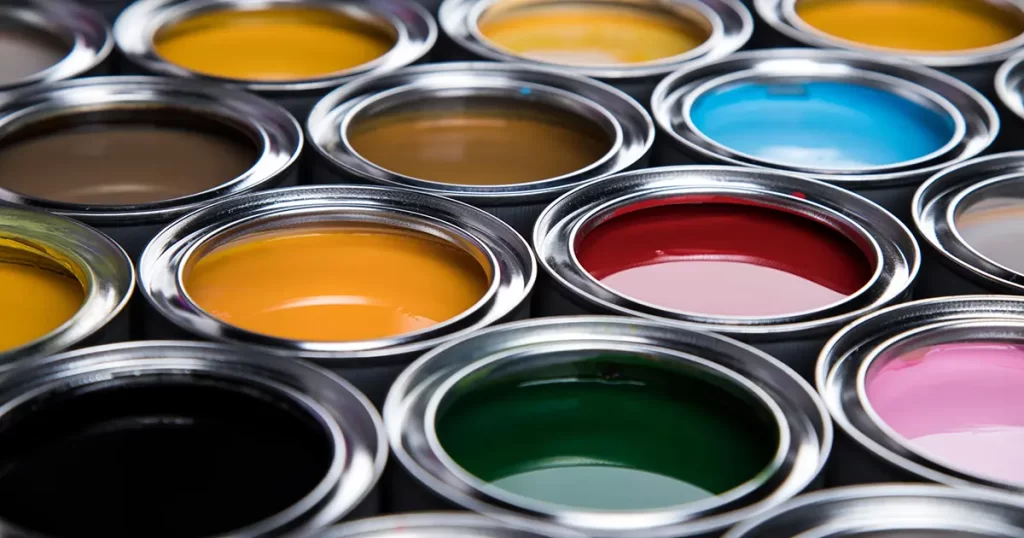If you’re a Tennessee homeowner gearing up for a fresh coat of paint inside or outside, you’re likely wondering: oil based vs latex paint, what’s better for my project?
It’s not just about color swatches or finishes. In Tennessee, where we face humid summers, heavy rainfall, and the occasional winter freeze, the type of paint you choose has to perform under pressure. Whether you’re painting siding, trim, porch rails, or interior walls, knowing the difference between oil-based and latex paint can save you time, money, and future headaches.
In this guide, we’ll break down oil based vs latex paint in the context of Tennessee’s unique climate, covering pros, cons, and when to use each one.

Why Tennessee Climate Impacts Your Paint Choice
Before diving into the comparison of oil based vs latex paint, it’s crucial to understand the impact of Tennessee’s weather:
- Humidity: Summer humidity often reaches 80% or more. This affects drying time and paint adhesion, especially with oil-based options.
- Temperature swings: From freezing winters to sweltering 90°F+ summers, temperature fluctuations cause paint to expand and contract.
- Rain: With over 50 inches of annual rainfall, moisture resistance is key for exterior paint longevity.
These environmental factors should guide your decision when choosing between oil-based or latex paint.
Oil Based vs Latex Paint: A Quick Comparison Chart
| Surface Type | Best Paint Type | Why |
|---|---|---|
| Exterior Siding | Latex | Handles moisture and expands/contracts |
| Trim & Doors | Oil or Hybrid | Smooth finish and durability |
| Interior Walls | Latex | Low odor, fast drying |
| Cabinets | Oil or Hybrid | Tough finish, stain-resistant |
| Porch & Decks | Specialized Latex | Flexible and weather-resistant |
Oil-Based Paint: Durable but Demanding
Oil-based paint is known for its toughness and smooth finish. It’s still a go-to for specific applications but it comes with trade-offs, especially in humid regions like Tennessee.
Pros:
- Durable finish ideal for trim, doors, and cabinets
- Smooth application with fewer brush marks
- Excellent wood sealing, prevents bleed-through from stains or tannins
Cons:
- Slow drying time, especially in high humidity
- Strong odor and higher VOCs (not ideal indoors)
- Difficult cleanup requiring mineral spirits or turpentine
Best Uses for Oil-Based Paint in Tennessee:
- High-traffic areas (doors, baseboards, windows)
- Bare wood that needs sealing
- Surfaces needing stain-blocking primer
Best Oil-Based Exterior Paint Brands
True oil-based exterior paints are becoming more regulated due to VOC laws, but some high-performance options still exist or are available as oil-alkyd hybrids.
- Sherwin-Williams: Great for sealing bare wood; strong adhesion in tough weather.
- Benjamin Moore: Smooth finish; ideal for trim and older homes.
- Rust-Oleum (Professional): Durable for metal or wood; best for railings and small jobs.

Latex Paint: Flexible, Fast, and Made for Tennessee
Latex paint, also called water-based paint, has become the top choice for most residential projects and with good reason. When comparing oil based vs latex paint for Tennessee, latex is often the winner due to its adaptability.
Pros:
- Fast drying, ideal during warm months or between rain spells
- Low-VOC formulas for safer indoor air quality
- Easy cleanup with just soap and water
- Flexibility that resists cracking during seasonal shifts
Cons:
- Less smooth on trim and cabinetry compared to oil-based
- May require more coats on darker or stained surfaces
Best Uses for Latex Paint in Tennessee:
- Exterior siding, stucco, and soffits
- Interior walls and ceilings
- Projects needing faster turnaround and low-odor application
Best Latex (Water-Based) Exterior Paint Brands
Modern latex paints offer excellent flexibility, fast drying, and weather resistance, perfect for Tennessee’s climate.
- Sherwin-Williams Duration®: Thick coverage, self-priming, and mold-resistant.
- Benjamin Moore Aura®: Rich color; resists fading and cold weather issues.
- Behr Marquee®: One-coat coverage; affordable and dependable.

Hybrid Paints: A Middle Ground Option
Not sure whether to go with oil-based or latex paint? Hybrid enamels or waterborne alkyds give you the best of both worlds, oil-based durability with latex cleanup and flexibility.
They’re especially useful for:
- Trim and molding
- Kitchen and bathroom cabinets
- Doors needing a smooth, hard finish in high humidity zones
Choosing the Right Paint for Your Project
Still stuck on the decision of oil based vs latex paint? Here’s a quick way to narrow it down:
- Go latex for exterior siding and interior walls, it’s faster, easier, and performs better in humidity.
- Use oil-based or hybrid options for trim, cabinets, and high-touch areas needing extra durability.
- Think about ventilation and cleanup, latex wins indoors, while oil-based paints require extra safety steps and longer cure times.
FAQs for Oil Based vs Latex Paint in Tennessee
Can I use latex paint over oil-based paint?
Yes, but only after sanding and priming with a bonding primer.
Does oil-based paint last longer?
Not necessarily. While it’s more durable on certain surfaces, latex paint often holds up better in Tennessee’s climate.
Which paint dries faster?
Latex dries much faster, ideal during humid summers when quick recoats are needed.
Is oil-based paint safe indoors?
It can be used in ventilated spaces, but latex is the safer, low-odor choice.
How can I tell which paint is already on my wall?
Rub with rubbing alcohol. If the paint comes off, it’s latex. If not, it’s oil-based.

Final Thoughts on Oil Based vs Latex Paint for Tennessee
Choosing between oil-based and latex paint comes down to one thing: matching the product to your project and climate. In Tennessee, latex paint is usually the better choice for most applications, thanks to its flexibility, fast drying, and resistance to moisture.
However, oil-based paint (or hybrids) still have their place. Especially for trims, cabinets, and stain-heavy surfaces.
Need help making the call? Our local team knows what works here. Contact us at (615) 673-5773 and we’ll help you choose the right paint and get the exterior paint job done right.
